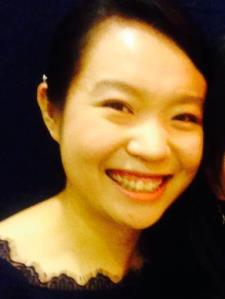











More than 4 million 5-star reviews
65,000 expert tutors in 300+ subjects
Find a great match with our Good Fit Guarantee
More than 4 million 5-star reviews
65,000 expert tutors in 300+ subjects
Find a great match with our Good Fit Guarantee
Featured by the nation’s most respected news sources
Tutors from top universities
Meet 1:1 at home or nearby
The Best Tutors in Frisco, TX
Find the best local tutor in Frisco

Near Frisco, TX
TOP ADVANCED+AP (SCORE 4 OR 5-MAY EXAM)+GEN/OCHEM GRADES via DR B
HELP ME TO HELP YOU END YOUR CHEMISTRY-MATH STRUGGLES FOR GOOD! I have amassed 4,100+ hours with having tutored ALGEBRA 2, PRECALCULUS, all levels of High School CHEMISTRY, and College GENERAL/ORGANIC CHEMISTRY. Globally-minded, I've...
HELP ME TO HELP YOU END YOUR CHEMISTRY-MATH STRUGGLES FOR GOOD! I have amassed 4,100+ hours with having tutored ALGEBRA 2, PRECALCULUS, all levels of High School CHEMISTRY, and College GENERAL/ORGANIC CHEMISTRY. Globally-minded, I've...
I started working with Dr. Bruce when I was a junior in high school in AP Chemistry. I was struggling in the class because of the overwhelming concepts, but after consistently working with Dr. Bruce, I was able to come out of the ... - Connie

Near Frisco, TX
Reading, Writing, and Arithmetic from Elementary to SAT/ACT Prep
As Valedictorian of my high school class and a Cum Laude graduate of Texas A&M University, I have a record of excellence in education. With a BA degree in English and a minor in accounting, I have a passion for all things English and all things...
As Valedictorian of my high school class and a Cum Laude graduate of Texas A&M University, I have a record of excellence in education. With a BA degree in English and a minor in accounting, I have a passion for all things English and all things...
My son had a fabulous session with Laura. We chose in person, but she does offer online. She's very knowledgeable, patient, kind and a clear/concise communicator. No minutes were wasted and my son and I both saw the value of the s... - Lisa, 2 lessons with Laura

Frisco, TX
Duke Grad, Experienced Mandarin Chinese Native Speaker Tutor
I am a native Mandarin Chinese speaker. I've been tutoring Chinese for over 5 years. I have students from 4 years old to 76 years old. I think the journey of learning Chinese should be fun and enjoyable and I tried my best to make every one of my...
I am a native Mandarin Chinese speaker. I've been tutoring Chinese for over 5 years. I have students from 4 years old to 76 years old. I think the journey of learning Chinese should be fun and enjoyable and I tried my best to make every one of my...
Jingyi is simply awesome and I am very lucky to have stumbled across her in my search for a Mandarin tutor. In preparation for a trip to China, i am using software, books, immersion and Jingyi to learn all that I can. Jingyi is ... - Steven, 37 lessons with Jingyi

Frisco, TX
SAT/ACT/Cal/Pre Cal/Algebra Math Tutor
With 6-7 years of tutoring experience in Mathematics, I’m passionate about helping students excel. Teaching is my true calling, and I dedicate my time to tutoring, as I believe it’s the most fulfilling way to spend my free time. I hold a...
With 6-7 years of tutoring experience in Mathematics, I’m passionate about helping students excel. Teaching is my true calling, and I dedicate my time to tutoring, as I believe it’s the most fulfilling way to spend my free time. I hold a...
After just one session with Syed and my son had a boost of confidence and made me aware that finally he understood the concept the way Syed taught it. Simplifying complex concepts into something that is easy to understand coupled ... - Sapnil, 4 lessons with Syed Mujtaba Abbas

Frisco, TX
Licensed K-6 Math Teacher
I'm a certified teacher for K-6 elementary education and ESL certified. I have experience teaching 4th and 5th grade math and science in the public school system. I am familiar with the standards that students have to master and am focused on...
I'm a certified teacher for K-6 elementary education and ESL certified. I have experience teaching 4th and 5th grade math and science in the public school system. I am familiar with the standards that students have to master and am focused on...

Near Frisco, TX
Former Professor, 10 Years+ SAT and ACT Math Tutor
I am a former business school professor with a PhD in management science and additional degrees in mathematics and computer science. I provide personal tutoring primarily to high school students preparing for Sat and Act Math Exams. I have...
I am a former business school professor with a PhD in management science and additional degrees in mathematics and computer science. I provide personal tutoring primarily to high school students preparing for Sat and Act Math Exams. I have...
My son has been using Dr. O primarily to increase his ACT/SAT scores. He gives full credit to Dr. O for raising his SAT scores by 200+ points into the upper 1400's and his ACT up 9 points up to two short of the maximum. Results ... - GALVIN, 39 lessons with Dr. Michael

Near Frisco, TX
Medical Student, 99th Percentile MCAT CARS Tutor
Hi! I am Kavya, a first year medical student at a T20 medical school. I love science and am passionate about helping you succeed in your coursework including in subjects like biology, genetics, neuroscience, chemistry, and organic chemistry. I...
Hi! I am Kavya, a first year medical student at a T20 medical school. I love science and am passionate about helping you succeed in your coursework including in subjects like biology, genetics, neuroscience, chemistry, and organic chemistry. I...

Frisco, TX
Dedicated, Patient and Experienced Chemistry Tutor
I am Deepa, a dedicated and experienced chemistry tutor with a true passion for Chemistry. I have tutored for more than 10 years and have had great success shaping the lives of hundreds of students. I am a caring mentor who has experience...
I am Deepa, a dedicated and experienced chemistry tutor with a true passion for Chemistry. I have tutored for more than 10 years and have had great success shaping the lives of hundreds of students. I am a caring mentor who has experience...
Deepa has been amazing! I had a weak understanding of both regular and AP Chemistry, but she helped me catch up and feel confident in my AP class. Her clear explanations and patience made a huge difference. I highly recommend her ... - Eduardo, 9 lessons with Deepa

Near Frisco, TX
Experienced Teacher - Inspirational and Compassionate
Hello, my name is Linda A. I hold a Professional Educator's Certificate Mathematics K-12, Social Studies 6-12 and Special Education K-12. In addition, I have been prepping teachers and future teachers to pass their Certification Exams, such as...
Hello, my name is Linda A. I hold a Professional Educator's Certificate Mathematics K-12, Social Studies 6-12 and Special Education K-12. In addition, I have been prepping teachers and future teachers to pass their Certification Exams, such as...
Linda completely changed the course of my granddaughter’s life. She could not read and was held back in first grade. It didn't take any time working with Linda until she could read. Her confidence has soared, and her conversationa... - Michael, 39 lessons with Linda

Frisco, TX
Business and Management Expert
Hi, I’m Andrew, a senior business leader with a passion for helping individuals and organizations achieve their full potential. With extensive experience in business operations, sales, analytics, and customer success, I bring a strategic...
Hi, I’m Andrew, a senior business leader with a passion for helping individuals and organizations achieve their full potential. With extensive experience in business operations, sales, analytics, and customer success, I bring a strategic...

Near Frisco, TX
Patient tutor for math and science
Hi, I’m Vickie. I graduated with a bachelor’s degree in microbiology and chemistry from Brigham Young University and have been a licensed and registered (ASCP) medical technologist for about 32 years. During that time, I have taught and...
Hi, I’m Vickie. I graduated with a bachelor’s degree in microbiology and chemistry from Brigham Young University and have been a licensed and registered (ASCP) medical technologist for about 32 years. During that time, I have taught and...

Near Frisco, TX
Experienced Math Tutor
I enjoy helping students to become more competent and confident in math. During tutor sessions, I focus on the student's homework. With my guidance, the student will learn the material and finish their homework! If supporting math skills are...
I enjoy helping students to become more competent and confident in math. During tutor sessions, I focus on the student's homework. With my guidance, the student will learn the material and finish their homework! If supporting math skills are...
Kathy helped me with College Algebra and was very clear and easy to understand. She explained to me in an hour what my teacher couldn't explain and make clear in a week! - Lisa, 2 lessons with Kathy

Near Frisco, TX
Dedicated & Dynamic French, Spanish, English Tutor (for kids & adults)
Hi everyone! I am a recent graduate from the University of St Andrews in Scotland with an honors degree in Social Anthropology and Modern Languages (Arabic and Russian). I love learning new languages and helping others achieve their linguistic...
Hi everyone! I am a recent graduate from the University of St Andrews in Scotland with an honors degree in Social Anthropology and Modern Languages (Arabic and Russian). I love learning new languages and helping others achieve their linguistic...

Near Frisco, TX
18 Yrs w/ AP World. 15 Yrs w/AP Euro. 3 Yrs w/US Gov.
I have been teaching AP World History for 18 years, AP European History for 15 years and Regular, US Government for 3 years. My AP Exam pass rate for AP World History far exceeds the national pass rate of 50% for the past 16 years. My AP European...
I have been teaching AP World History for 18 years, AP European History for 15 years and Regular, US Government for 3 years. My AP Exam pass rate for AP World History far exceeds the national pass rate of 50% for the past 16 years. My AP European...
Ty is such a great tutor/teacher. His teaching style is easy to follow and flows very well in terms of explaining things. He gives a good context to what you want to learn or review, and he always covers the topic in great detail.... - Orly , 9 lessons with Ty

Frisco, TX
Finance, Insurance, ERM & Risk Expert
I’ve spent over twenty years working in finance, commercial insurance and enterprise risk—covering everything from underwriting strategy and cyber risk to claims, finance, and compliance—and one thing has always stood out to me: people learn...
I’ve spent over twenty years working in finance, commercial insurance and enterprise risk—covering everything from underwriting strategy and cyber risk to claims, finance, and compliance—and one thing has always stood out to me: people learn...

Near Frisco, TX
Well-Rounded Tutor specializing in Biochemistry
Hi, My name is Ahad! I am a graduate TA and tutor from Baylor University with a Major in Molecular Biology, and Minor in Chemical Sciences. I am a current Dental Applicant, and have made both the Honor Roll and the Dean’s list during my time in...
Hi, My name is Ahad! I am a graduate TA and tutor from Baylor University with a Major in Molecular Biology, and Minor in Chemical Sciences. I am a current Dental Applicant, and have made both the Honor Roll and the Dean’s list during my time in...

Frisco, TX
Helping You Master Math by Using the Way YOU Learn Best
Hi! I’m MiKayla, and I used to feel completely lost in math—until one day, someone explained it in a way that actually made sense to me. That moment flipped a switch, and it’s why I became a tutor. It led me to pursue a degree in engineering...
Hi! I’m MiKayla, and I used to feel completely lost in math—until one day, someone explained it in a way that actually made sense to me. That moment flipped a switch, and it’s why I became a tutor. It led me to pursue a degree in engineering...

Near Frisco, TX
Experienced Tutor: Teacher certified in Math 4-12 & Physics 8-12
Hi I am Jane, I work with students in grades 6 to 12 and college students. I have been working with WyzAnt for four years now, before that I taught in public school. My tutoring subjects are: middle school math, Algebra 1 and 2, Geometry,...
Hi I am Jane, I work with students in grades 6 to 12 and college students. I have been working with WyzAnt for four years now, before that I taught in public school. My tutoring subjects are: middle school math, Algebra 1 and 2, Geometry,...
I have been a student of Jane's for about a year and the improvements I have made in undergraduate physics II are beyond my expectations. She is a brilliant individual and explains concepts so well- better than any of my professor... - Marina, 8 lessons with Jane

Near Frisco, TX
Experienced Writer and Literature Teacher
SUMMER WRITING AND READING CAMPS--I am offering online 'camps' to help get you ready for the 2025-2026 school year. I will tailor a program to meet your goals and prepare you for next year. Whether it's mastering the persuasive essay or prepping...
SUMMER WRITING AND READING CAMPS--I am offering online 'camps' to help get you ready for the 2025-2026 school year. I will tailor a program to meet your goals and prepare you for next year. Whether it's mastering the persuasive essay or prepping...

Frisco, TX
Science & German
Born and raised in Germany, I graduated from college in 1995 with a degree in special ed and nursing. I came to Texas in 1997 and studied Biology at UTD. I graduated with a Bachelor's degree in Biology and a minor in health care. I currently hold...
Born and raised in Germany, I graduated from college in 1995 with a degree in special ed and nursing. I came to Texas in 1997 and studied Biology at UTD. I graduated with a Bachelor's degree in Biology and a minor in health care. I currently hold...
Mr. Sean provides everything I need to excel in learning German. He provides me with resources, wealth of expertise, patience, and energy to help propel me to excellence. I feel very fortunate to be tutored by Mr. Sean. - Theresa, 36 lessons with Sean

Near Frisco, TX
April RN - NCLEX, Med/Surg, Critical Care, Pediatrics, Fundamentals
With 20 years of experience as a registered nurse, I can honestly say I love being a nurse and I love helping new nurses. I actually love Med/Surg and think NCLEX prep is fun, and I truly enjoy helping graduate nurses prepare for success....
With 20 years of experience as a registered nurse, I can honestly say I love being a nurse and I love helping new nurses. I actually love Med/Surg and think NCLEX prep is fun, and I truly enjoy helping graduate nurses prepare for success....
To everyone searching for a tutor or feels lost on how to prepare for the NCLEX, April is your girl. I wish I could put into words how incredible she is. Not only is she an amazing teacher, she is so caring and helpful in ensuring... - Falon, 11 lessons with April

Frisco, TX
PhD Grad, Accredited Computer Science and Math K-12 Teacher
My greatest passion in life is teaching. I have experienced great success at school and at university due to amazing and unforgettable teachers. This is the foundation of my commitment to helping out my students, whatever their abilities may be. I...
My greatest passion in life is teaching. I have experienced great success at school and at university due to amazing and unforgettable teachers. This is the foundation of my commitment to helping out my students, whatever their abilities may be. I...

Frisco, TX
Passionate Teacher with Law Degree Specializing in College Counseling
*Presently, my only availability is on the weekends. * For college counseling services, because I understand how the admission process can be overwhelming and daunting for many of my high school seniors and their parents, I will be more...
*Presently, my only availability is on the weekends. * For college counseling services, because I understand how the admission process can be overwhelming and daunting for many of my high school seniors and their parents, I will be more...
I usually don't leave reviews but my son's lesson with Rochelle impressed me very much. As he is going to be a senior this year, the college admission process and required essays are very stressful for him and for me (this is my f... - Rachel, 2 lessons with Rochelle

Near Frisco, TX
Experienced Russian, Ukrainian, and ESL teacher
My name is Olha. I am a native Russian language and Ukrainian language speaker. I offer small-group and one-on-one lessons in Russian, Ukrainian and English as a second language. My education includes a Bachelor degree in education from Sumy...
My name is Olha. I am a native Russian language and Ukrainian language speaker. I offer small-group and one-on-one lessons in Russian, Ukrainian and English as a second language. My education includes a Bachelor degree in education from Sumy...
I am a business teacher by profession and work with corporations all over the world and as such, have very high expectations of those teaching me something; particularly a subject as complicated and grueling as the Russian langua... - Patrick, 3 lessons with Olha

Near Frisco, TX
Energetic and Patient French Tutor Specializing in Test Prep
Bonjour! I'm Richard and I love French! I believe that learning French helps develop creative thinking and problem-solving skills. More importantly, learning a foreign language, such as French, expands worldviews while teaching and encouraging...
Bonjour! I'm Richard and I love French! I believe that learning French helps develop creative thinking and problem-solving skills. More importantly, learning a foreign language, such as French, expands worldviews while teaching and encouraging...
I have been very impressed with Richard's teaching style and experience. He is proving to be a perfect choice for any level. Even with my limited French, I can tell he speaks like a native, and his background in academics means ... - Talia
Frisco Tutors Cost $35 - 60 per hour on average
What’s a fair price for a private Frisco tutor? Frisco tutors using Wyzant are professional subject experts who set their own price based on their demand and skill.
Compare tutor costs. With a range of price options, there’s a tutor for every budget.
Sign up, search, and message with expert tutors free of charge.
Only pay for the time you need. Whether it’s one lesson or seven, you decide what to spend.
Love Your Lesson Or It’s Free
Your first hour with a new tutor is protected by Wyzant’s Good Fit Guarantee. If you’re not satisfied with your lesson, you don’t pay. No questions asked.Reported on by leading news outlets



Tutors in Frisco, TX
Tutors in Frisco, TX connect students with local and online instructors who partner with them for personalized learning experiences. Parents and students can find guidance across subjects, skills, and grade levels. This page highlights Wyzant tutoring options available in Frisco, including a variety of experienced mentor listings.
Learning with a tutor provides tailored guidance that encourages confidence, understanding, and academic growth. Whether preparing for tests, strengthening foundational skills, or exploring new concepts, personalized lessons make progress practical and motivating.
Wyzant helps learners access expert tutoring by connecting them with educators who adapt to individual needs. This platform makes it easy to schedule convenient, flexible lessons that support ongoing success and make learning more engaging.
A nationwide network
Private Tutors in Frisco
Your Frisco private tutoring options may be numerous, but don't you want to take 1 on 1 lessons with the very best tutors in Frisco? We have the largest network of qualified private tutors, so students can choose their ideal tutor (and rates) from the best of the best. With Wyzant, you can find local tutors for over 250 subjects, including:
Frisco Chemistry Tutors | Frisco French Tutors | Frisco Study Skills Tutors | Frisco SAT Tutors | Frisco Java Tutors | Frisco Biology Tutors | Frisco College Counseling Tutors | Frisco Public Speaking Tutors | Frisco Calculus Tutors | Frisco Accounting Tutors | Frisco Mandarin Tutors | Frisco AP Physics Tutors | Frisco Chess Lessons | Frisco Spanish Tutors | Frisco Coding Tutors | Frisco College Essay Tutors | Frisco Math Tutors | Frisco Algebra 2 Tutors | Frisco Precalculus Tutors | Frisco GED Tutors | Frisco Dyslexia Tutors | Frisco Sewing Lessons | Frisco Tennis Lessons | Frisco Soccer Lessons | Frisco GRE Tutors
Tutoring Near Frisco
If you don’t live in the center of Frisco, we do have local tutors in areas that may be closer to you, conveniently available for private 1:1 lessons at attractive rates. Compare reviews and qualifications and reach out to a tutor in your metro ASAP.
Dallas Tutors | Fort Worth Tutors | Arlington Tutors | Plano Tutors | Garland Tutors | Irving Tutors | Lewisville Tutors | Grand Prairie Tutors | Mesquite Tutors | Mckinney Tutors | Haltom City Tutors | Denton Tutors | Carrollton Tutors | North Richland Hills Tutors | Keller Tutors | Allen Tutors | Richardson Tutors | Benbrook Tutors | Grapevine Tutors | Flower Mound Tutors | Euless Tutors | Burleson Tutors | Rowlett Tutors | Desoto Tutors | Highland Park Tutors | Bedford Tutors | The Colony Tutors | Lucas Tutors
Find online tutors
Get help anytime! We only accept the best online tutors into our community. Get the help you need, right when you need it with the convenience of online lessons.

